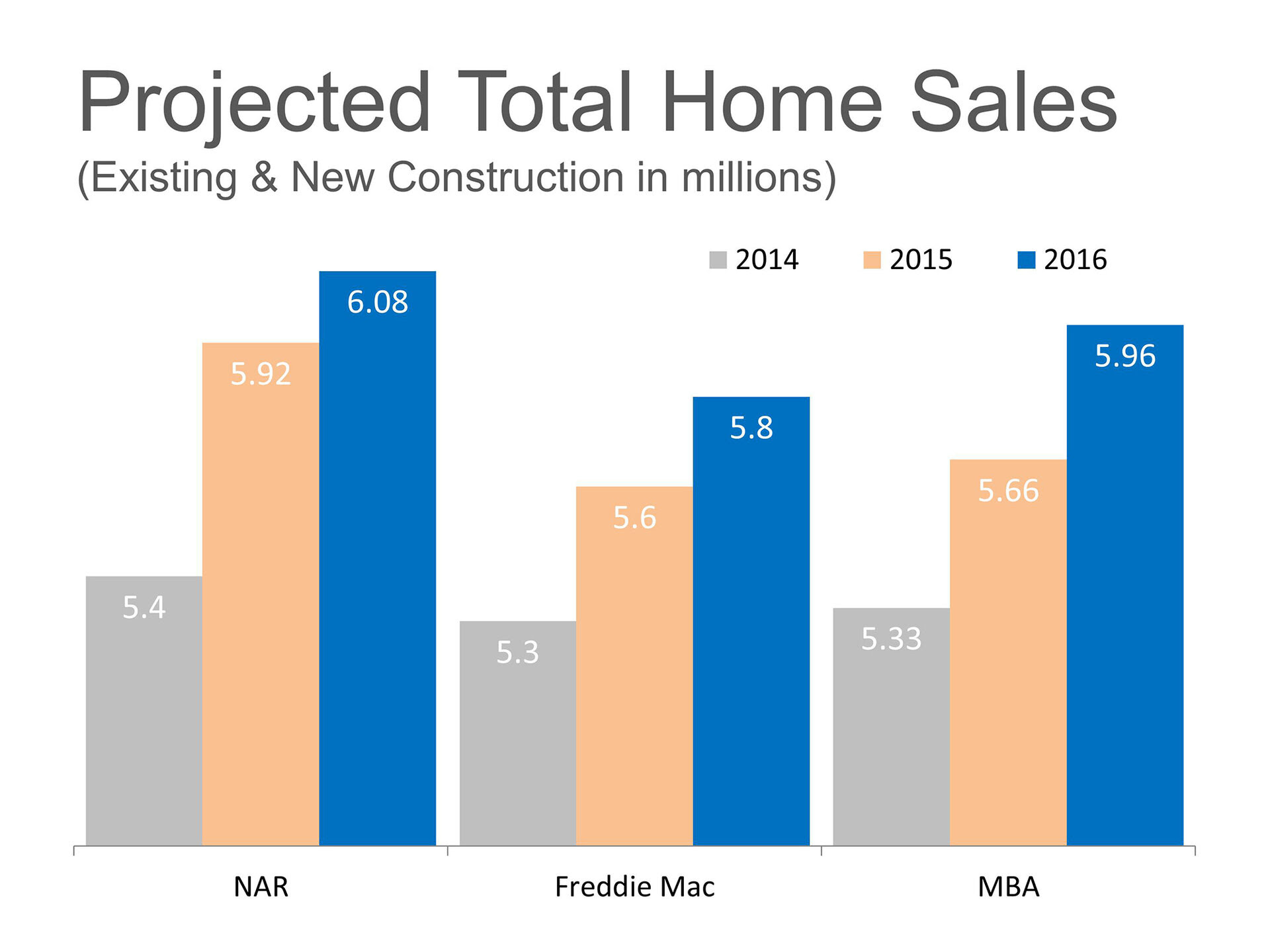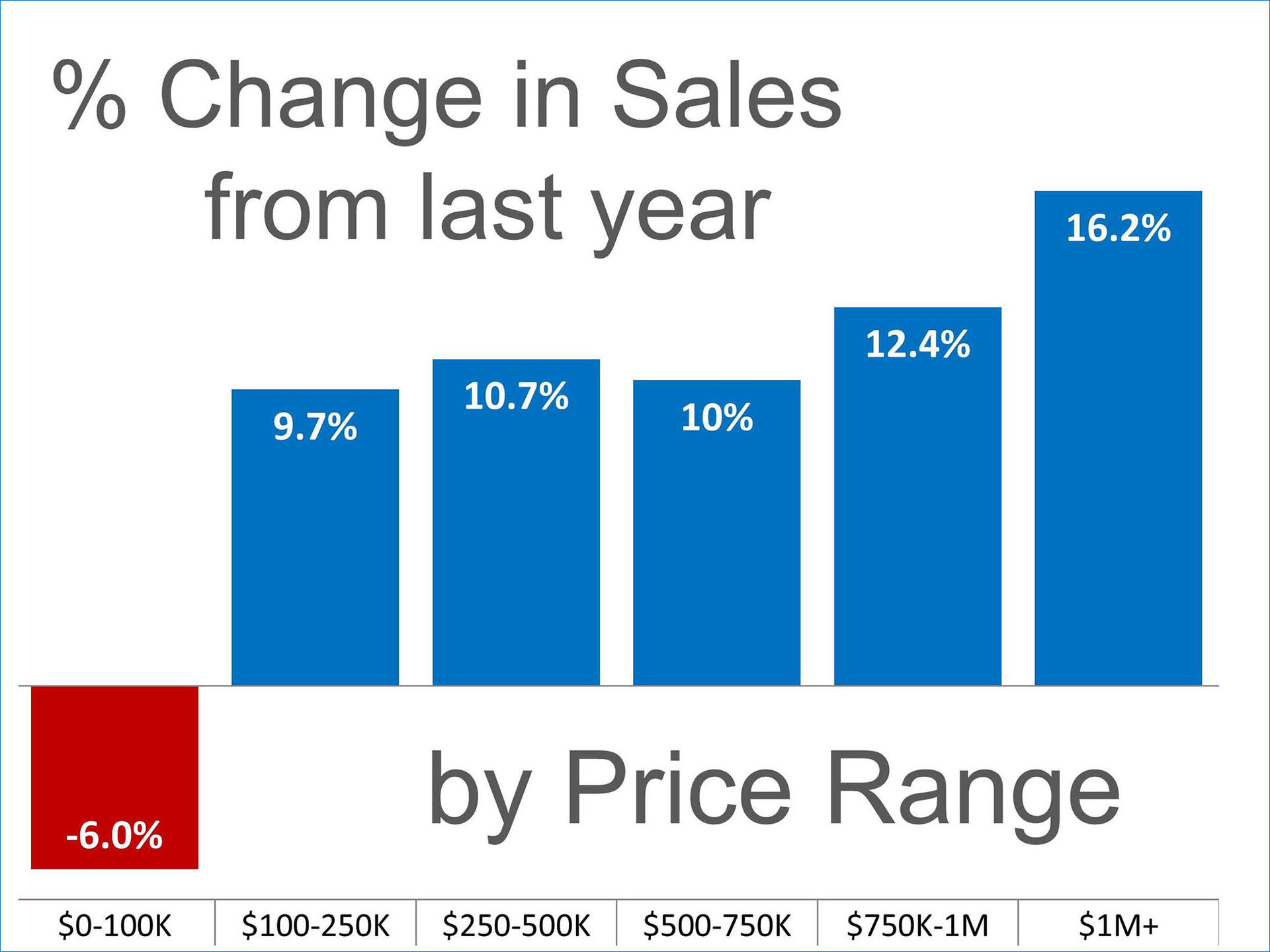
Tuesday, December 30, 2014
More on Buying a property on Leased Land
Generally, a person purchasing a home buys the house and the land upon which it is situated. But there is a form of home buying where only the house is purchased and the land is leased. This form of financial arrangement is called a land lease. There are various reasons why one might wish to enter into a land lease agreement rather than a home purchase.
A common situation is one where an investor wants to retain ownership of a parcel of land but not develop it. The owner would enter into the land lease contract with a developer to build a home and then sell it. But the land would not come with the house. Usually a land lease will be for between 50 and 99 years. If the lease is near the end, the owner will generally renew it, although with a rental increase. There are advantages and disadvantages to this form of home ownership.
The advantages of land lease contracts
The most significant advantage of a land lease is that the purchase price is almost always much less than that for a home bought in the traditional manner. Not buying the land saves money. This enables you to purchase a higher quality home in a more expensive residential area than you might otherwise be able to do. Also, because you don't own the land itself, you will have no or low property taxes to pay.
Typically land lease homes are part of residential communities that provide common services and facilities. Amenities might include private playgrounds, swimming pools, tennis courts, party or conference rooms and so forth. There would be homeowner association (HOA) fees. But they would most likely cover lawn mowing, snow removal and similar services.
The disadvantages of land lease contracts
There are downsides to holding property under a land lease contract. It is often problematic finding financing for land lease homes. This makes them harder to sell. HOA fees for these properties are invariably higher than those for comparable houses owned outright or for condos. The residents generally share in the cost of the lease of the land. That portion of the lease might appear in the monthly HOA bill. In addition, the HOA might make large assessments to cover major community improvements. If you don't use certain costly amenities such as a golf course, you might find maintenance or major upgrades to be overly burdensome. You also might wish to do your own landscaping.
The most significant disadvantages are economic issues. Home ownership is a good hedge against inflation. When you are paying off a fixed-rate mortgage, your monthly payment remains the same when inflation rises. For a leased-land property, the lease payments and monthly HOA fees will increase at the rate of inflation or greater. At the same time, your home will decrease in value as the lease term approaches its end. Also, you will not be building any equity in your leased land residence. At the expiration of the lease, you could lose all of your equity according to the surrender clause of the lease.
Other land lease agreement considerations
Other considerations to examine before signing a land lease agreement include the amount of time remaining on the lease. If it is less than the time you plan to live in the house, you need to know your status at the expiration of the lease. This information is also critical in financing the home. If the remaining lease term is less years than what you want a mortgage for, it will be very difficult to obtain the financing. You also need to be fully aware of the terms of the surrender clause. The amounts of the monthly lease payment and HOA fees, how often they are adjusted, and by how much, are very important.
Buying a home through a land lease contract can be an attractive option in light of the lower purchase price. It is essential that you study the matter and obtain advice from professionals who are knowledgeable about land lease agreements.
Monday, December 29, 2014
Rescuing Your Home from the Holidays
The holiday season can be tough on your home. Getting it back into shape can be even tougher. Part of that can be attributed to the overwhelming list of what you need to do. But the biggest barrier is often finding the time and motivation to start knocking out your to-do list. If you don’t feel like tackling all the projects yourself (and we don’t blame you) you might want to think about hiring a pro.
Cleaning a room or two isn’t a big deal. Giving your home a room-by-room deep cleaning is. And after a month of entertaining and holiday traffic your home could probably use a good scrubbing. Instead of spending a day doing it yourself, take a break and hire a cleaning service to give your home the floor-to-ceiling cleaning it deserves. You’ll be pleased with the results, and even more pleased to know that most homeowners only spend between $162 and $202 to have their homes professionally cleaned.
Nothing makes a room look more rundown than dirty, worn out carpet. And while you keep them vacuumed and stain-free, they’re probably not as clean as they could be. Most experts recommend having them professionally cleaned at least once a year (twice if subjected to heavy traffic). Now, you could rent a steam cleaner and do the job yourself. But when you factor in the rental fee, cost of cleaning solutions, and time it’ll take you to do the job and compare it to the cost of hiring a pro, you might find that it makes more sense to pay a pro to do the job for you.
People like stuff. We accumulate a lot of it over the holidays. Over time we amass more stuff than we have space for. When that happens our houses become claustrophobic and we start threatening to throw stuff away. And while you could certainly benefit from getting rid of a few things, you could really benefit from adding a closet or two, because if there’s one thing a home can never have too much of, it’s closet space. Whether you’re looking to expand an existing closet or add built-ins to your family room, adding closet space is an investment that pays dividends right away. And with an average cost of $2,054, it’s a project that could be more accessible than you think.
Wednesday, December 24, 2014
Should you buy property on "Leased Land?"
For most "condos", you "own" an "air parcel", no actual land. The "home owner association", usually ends up owning the land, and all "air parcel owners" become manditory members of the "home owner association". The legal documents forming the "home owner association" are usually very specific about what the association can do with the land and the responsibilities and options of the "members".
A leased land situation is entirely different. Sometimes a developer is not able to buy out the land from the owner and can only get a long term lease. This often happens when property is owned by non-profit entities (such as churches), or when it is official "native american" property, or when it is owned by the Federal Government (such as in a national forest).
And of course most "trailer parks" and "modular home" parks are leased property with the landlord owning and maintaining the site and providing utility connections.
YES, you can buy your own home in the "national forest"; but most of the homes are not on private land. The same is true of many camp properties. For the Federal Government, the most common leases are 20 year leases, and 99 year leases, and they tend not to issue new ones, but only renew existing ones. Usually the leases are transferable with the sale of the structure.
A leased land situation is entirely different. Sometimes a developer is not able to buy out the land from the owner and can only get a long term lease. This often happens when property is owned by non-profit entities (such as churches), or when it is official "native american" property, or when it is owned by the Federal Government (such as in a national forest).
And of course most "trailer parks" and "modular home" parks are leased property with the landlord owning and maintaining the site and providing utility connections.
YES, you can buy your own home in the "national forest"; but most of the homes are not on private land. The same is true of many camp properties. For the Federal Government, the most common leases are 20 year leases, and 99 year leases, and they tend not to issue new ones, but only renew existing ones. Usually the leases are transferable with the sale of the structure.
Friday, December 19, 2014
Wednesday, December 17, 2014
Friday, December 12, 2014
What Homes Do Millennials Buy?
New NAHB research shows that millennials tend to buy homes that are smaller, older, and less expensive than homes bought by older generations. Being the youngest home buyers with little or no accumulated wealth also affects how millennials shop and buy their homes.
The majority of millennials are buying homes for the first time in their lives. Three out of four millennials who purchased a home were first-time buyers, but a quarter traded their existing homes.
Compared to older generations, millennials are less likely to buy a new home. Less than 9 percent of millennial home buyers bought a new home. The share was close to 12 percent among older home buyers.
More than two-thirds of millennials who bought homes purchased single-family detached properties. Nevertheless, compared to older home buyers, the millennial generation shows a slightly higher preference for multifamily condominiums. Close to 9 percent of millennial home buyers bought a multifamily property compared to less than 6 percent of older home buyers.

Consistent with being the youngest and largely first-time home buyers, millennials tend to buy homes that are, on average, smaller and concentrated in the lower price ranges compared to homes purchased by older generations. Half of all homes purchased by millennials averaged less than 1,650 square feet of living space and cost less than $148,500.

The most common reason for moving reported by millennial home buyers is to establish their own household, followed by the desire to have a larger unit and own it.
Consistent with being the youngest and largely first-time home buyers, millennials tend to buy homes that are, on average, smaller and concentrated in the lower price ranges compared to homes purchased by older generations. Half of all homes purchased by millennials averaged less than 1,650 square feet of living space and cost less than $148,500.
The most common reason for moving reported by millennial home buyers is to establish their own household, followed by the desire to have a larger unit and own it.
When choosing a particular home, millennials are more likely to let financial reasons influence their choice, while older generations consider the right size most often.
When selecting a new neighborhood, the right house most often influences the decision for both millennial and older home buyers. However, millennials are more likely to also pay attention to proximity to work and having good schools.
Compared to older generations of home buyers, millennials are more likely to finance home purchases out of current income rather than out of accumulated wealth, and when taking out mortgages they are more likely to use unconventional zero-down mortgages.

The research is based on the 2013 American Housing Survey (AHS), the most recent release of this ongoing biennial housing data collection. Only housing units purchased in the two years preceding the 2013 AHS interviews are considered. Housing unit characteristics are tabulated by the age of the household of head, a person in whose name the housing unit is owned. Millennial home buyers are householders that were 33 years old or younger in 2013 and bought homes within the two years prior to the AHS interviews.
The research is based on the 2013 American Housing Survey (AHS), the most recent release of this ongoing biennial housing data collection. Only housing units purchased in the two years preceding the 2013 AHS interviews are considered. Housing unit characteristics are tabulated by the age of the household of head, a person in whose name the housing unit is owned. Millennial home buyers are householders that were 33 years old or younger in 2013 and bought homes within the two years prior to the AHS interviews.
Saturday, December 6, 2014
Home Prices Continue to Rise

“Broad-based Slowdown for Home Prices”
That is a headline you might have seen over the past weekend. And though it is true, we must understand the story behind the headline. Case Shiller reports on the year-over-year difference in home values. Their latest report revealed that the rate of appreciation has slowed – not that prices are falling!! Here is exactly what they said:“The 20-City Composite gained 4.9% year-over-year, compared to 5.6% in August.”Prices are still up this month over last year’s values (4.9%) just not as much as they were last month (5.6%).Home Prices are NOT Falling.
As a matter of fact, the latest Home Price Expectation Survey by Pulsenomics (a survey of a nationwide panel of over one hundred economists, real estate experts and investment & market strategists) showed that home prices will continue to appreciate for the next several years.
Bottom Line
Both first time buyers and families thinking of moving-up to their dream home can be assured that their investment in their new home makes sense.Friday, December 5, 2014
The Real Estate Market Has Turned The Corner

 All three entities see the number of home sales increasing in both 2015 and 2016. This is further proof the housing market is back.
All three entities see the number of home sales increasing in both 2015 and 2016. This is further proof the housing market is back.
Thursday, December 4, 2014
Posted: 02 Dec 2014 04:00 AM PST

Here is the breakdown:

What does that mean to you if you are selling?
Houses are definitely selling. If your house has been on the market for any length of time and has not yet sold, perhaps it is time to sit with your agent and see if it is priced appropriately to compete in today’s market.Wednesday, December 3, 2014
Monday, November 24, 2014
Don't Let a Clogged Disposal Derail Your Holidays
Did you know that a clogged garbage disposal is one of the most common home repair mishaps to occur during the holidays? We've got a few tips that'll keep your disposal from derailing your holiday festivities.
If you have a garbage disposal there’s a good chance it has clogged on you a few times. Some of you may have even had to replace one or two over the course of your home owning experiences. At one point most of us fall into the trap of trying to shove every scrap of food down the thing. Sometimes the disposal is up to the task, other times, not so much. If you’ve ever had to deal with a clogged disposal you know how much fun it is - especially when it happens in the middle of preparing the most important meals of the year. Want to keep yours running free and clear? Follow these easy tips.
The easiest way to keep your disposal running is by knowing what not to put in it. You might be tempted to toss anything and everything down there, but avoid putting egg shells, potato peels, coffee grounds, rice, pasta, asparagus, celery, carrot peels and anything else hard, fibrous or gummy. Moral of the story: when it doubt, throw it out.
To that point, it goes without saying that you should also avoid overfilling the disposal. No matter how burly it is it can only handle so much. So can your pipes. To ensure that they don't get clogged be sure to run the water before and after you use the disposal.Is your disposal taking a bit longer to do its disposing? If so, its blades probably need sharpening. A quick way to sharpen them (and take care of any lingering smells) is to run some ice cubes and chopped lemons through the disposal.
Of course, following all those recommendations doesn't guarantee a clog-free disposal. Sometimes things just break. If your disposal is starting to show its age, or you're concerned about its operation, we recommend hiring a pro to come out and take a look at it. A quick tune up today can save you a headache later.
Friday, November 21, 2014
Tuesday, November 18, 2014
Cooking for a crowd is a challenge no matter what conditions you’re cooking in. That challenge is amplified if you’ve got appliances that don’t work properly and layout that’s cramped, poorly laid out, and disorganized. Thankfully, there are a few things you can do to cure your cramped kitchen woes.
You’re probably familiar with the concept of the work triangle (where the legs are the distances from the fridge, sink, and cooking surface). The theory goes that a properly laid out work triangle allows each cook to work more efficiently. Ideally, each cook has his or her own work triangle. Too bad that’s not always possible. One of the ways to work around a lack of space is to buy appliances that make the most efficient use of the space you do have. In-wall double ovens are a great idea if you frequently cook for a crowd, while countertop-cooking surfaces are perfect for those who need extra cabinet space. Of course, when you cook for a crowd you have to clean up for them. If you’ve got the space, think about adding an extra dishwasher. If that’s not an option, you could go with the alternative and replace your current dishwasher with an energy efficient, large capacity model.
Chances are you only have one sink in your kitchen. How great would it be to have two? If you’ve got a nice sized kitchen island, you might want to talk to a plumber to see what it’d take to add a prep sink to your island. If that’s not an option, adding a pot filler faucet behind your stove is a great way to improve your kitchen’s flow without spending an arm and a leg. One final tip: Now’s the time to make sure your garbage disposal is cleaned and ready for the extra workload. If it’s been sounding rough, we recommend calling a plumber or handyman to come out and take a look at it.
Outside of completely remodeling your kitchen, there’s no better way to improve your kitchen’s functionality than by upgrading your cabinets to make the most of your space. Retractable trashcans, lazy Susans, pullout shelving, and drawer and cabinet dividers all make smart additions to your existing cabinets. If you’ve got the budget to install new cabinets, a great way to boost your storage options is to go with base cabinets with drawers rather than doors and to extend your upper cabinets to the ceiling.
Few projects spark the imagination like a kitchen remodel. It’s the one project that a homeowner starts daydreaming about as soon as they move into their house. Perhaps it’s the one project you’ve been daydreaming about, too. Whether you want to open things up and create a more expansive space that’s perfect for entertaining, or add more room to accommodate multiple cooks in the kitchen, a remodel is the way to go if you want to create the ultimate cooking and entertaining environment.
Monday, November 17, 2014
5 Reasons You Shouldn’t For Sale by Owner

Here are five of our reasons
1. There Are Too Many People to Negotiate With
Here is a list of some of the people with whom you must be prepared to negotiate if you decide to FSBO.- The buyer who wants the best deal possible
- The buyer’s agent who solely represents the best interest of the buyer
- The buyer’s attorney (in some parts of the country)
- The home inspection companies which work for the buyer and will almost always find some problems with the house
- The appraiser if there is a question of value
- Your bank in the case of a short sale
2. Exposure to Prospective Purchasers
Recent studies have shown that 92% of buyers search online for a home. That is in comparison to only 28% looking at print newspaper ads. Most real estate agents have an extensive internet strategy to promote the sale of your home. Do you?3. Actual Results also come from the Internet
Where do buyers find the home they actually purchased?- 43% on the internet
- 9% from a yard sign
- 1% from newspapers
4. FSBOing has Become More and More Difficult
The paperwork involved in selling and buying a home has increased dramatically as industry disclosures and regulations have become mandatory. This is one of the reasons that the percentage of people FSBOing has dropped from 19% to 9% over the last 20+ years.5. You Net More Money when Using an Agent
Many homeowners believe that they will save the real estate commission by selling on their own. Realize that the main reason buyers look at FSBOs is because they also believe they can save the real commission. The seller and buyer can’t both save the same commission. Studies have shown that the typical house sold by the homeowner sells for $184,000 while the typical house sold by an agent sells for $230,000. This doesn’t mean that an agent can get $46,000 more for your home as studies have shown that people are more likely to FSBO in markets with lower price points. However, it does show that selling on your own might not make sense.Bottom Line
Before you decide to take on the challenges of selling your house on your own, sit with a real estate professional in your marketplace and see what they have to offer.Saturday, November 15, 2014
Friday, November 14, 2014
In a quarterly survey of more than 100 real estate experts and economists, real estate data firm Zillowfound 40 percent of respondents believe it will take another three to five years for the housing market to normalize, based on current home price trends and homebuyer activity.
Nearly a third of panelists took a more optimistic view, predicting the market will stabilize one to two years from now, while one in five responded that housing has either already returned to normal or will within the next 12 months.
When asked about headwinds facing the market right now, respondents pointed to low household formation rates, which have been stymied in part by a challenged economy. According to another recent study from Zillow, more than a third of adults living in the U.S. were living with at least one roommate as of 2012, up from a quarter in 2000.
While those renters represent millions of potential new formations in the years to come, they remain stuck where they are as jobs and wages slowly grow.
Demographic issues are also at play, Zillow reported. While more millennials seem to be holding off on major commitments—including homeownership, marriage, and parenthood—a growing number of Americans nearing retirement age are also opting to stay in their homes longer, keeping the nation's housing inventory from making any meaningful recovery.
"We've reached a point in the recovery where the only real cure-all is time," Zillow Chief Economist Dr. Stan Humphries said. "[T]he landscape is slowly changing, as incomes begin to grow, negative equity fades and new households start to form. These shifts won't occur overnight, but they are happening. Patience will be a virtue over the next few years as we wait for these traditional fundamentals to more fully take hold in the market."
Wednesday, November 12, 2014
5 Reasons to Hire a Real Estate Professional

1. What do you do with all this paperwork?
Each state has different regulations regarding the contracts required for a successful sale, and these regulations are constantly changing. A true Real Estate Professional is an expert in their market and can guide you through the stacks of paperwork necessary to make your dream a reality.2. Ok, so you found your dream house, now what?
According to the Orlando Regional REALTOR Association, there are over 230 possible actions that need to take place during every successful real estate transaction. Don’t you want someone who has been there before, who knows what these actions are to make sure that you acquire your dream?3. Are you a good negotiator?
So maybe you’re not convinced that you need an agent to sell your home. However, after looking at the list of parties that you need to be prepared to negotiate with, you’ll realize the value in selecting a Real Estate Professional. From the buyer (who wants the best deal possible), to the home inspection companies, to the appraiser, there are at least 11 different people that you will have to be knowledgeable with and answer to, during the process.4. What is the home you’re buying/selling really worth?
It is important for your home to be priced correctly from the start to attract the right buyers and shorten the time that it’s on the market. You need someone who is not emotionally connected to your home to give you the truth as to your home’s value. According to the National Association of REALTORS, “the typical FSBO home sold for $184,000 compared to $230,000 among agent-assisted home sales.” Get the most out of your transaction by hiring a professional.5. Do you know what’s really going on in the market?
There is so much information out there on the news and the internet about home sales, prices, mortgage rates; how do you know what’s going on specifically in your area? Who do you turn to in order to competitively price your home correctly at the beginning of the selling process? How do you know what to offer on your dream home without paying too much, or offending the seller with a low-ball offer? Dave Ramsey, the financial guru advises:“When getting help with money, whether it’s insurance, real estate or investments, you should always look for someone with the heart of a teacher, not the heart of a salesman.”Hiring an agent who has their finger on the pulse of the market will make your buying/selling experience an educated one. You need someone who is going to tell you the truth, not just what they think you want to hear.
Bottom Line:
You wouldn’t replace the engine in your car without a trusted mechanic. Why would you make one of your most important financial decisions of your life without hiring a Real Estate Professional?Saturday, November 8, 2014
Buying a Home Remains 38% Less Expensive than Renting!

- Rents have continued to increase nationally even as home price increases are starting to slow. Current low mortgage rates have kept homeownership from becoming more expensive than renting.
- Some markets might tip in favor of renting next year if home prices increase at a greater rate than rents and if – as most economists expect – mortgage rates rise, due to the strengthening economy.
Nationally, rates would have to rise to 10.6% for renting to be cheaper than buying – and rates haven’t been that high since 1989.
Bottom Line
Buying a home makes sense. Rental costs have historically increased at a higher rate of inflation. Lock in a mortgage payment now before home prices and mortgage rates rise as experts expect they willFriday, October 31, 2014
Welcome to the most current Housing Trends eNewsletter. This eNewsletter is specially designed for you, with national and local housing information that you may find useful whether you’re in the market for a home, thinking about selling your home, or just interested in homeowner issues in general.
Please click on this link to view the Housing Trends October 2014 Newsletterhttp://wendyjimenez.housingtrendsenewsletter.com
The Housing Trends eNewsletter contains the latest information from the National Association of REALTORS®, the U.S. Census Bureau, Realtor.org reports and other sources.
Housing Trends eNewsletter is filled with local and national real estate sales and price activity provided by MLSs and the National Association of Realtors, U.S. Census Bureau key market indicators, consumer videos, blogs, real estate glossary, mortgage rates and calculators, consumer articles, and REALTOR.com local community reports.
If you are interested in determining the value of your home, click the “Home Evaluator” link for a free evaluation report:
Please click on this link to view the Housing Trends October 2014 Newsletterhttp://wendyjimenez.housingtrendsenewsletter.com
The Housing Trends eNewsletter contains the latest information from the National Association of REALTORS®, the U.S. Census Bureau, Realtor.org reports and other sources.
Housing Trends eNewsletter is filled with local and national real estate sales and price activity provided by MLSs and the National Association of Realtors, U.S. Census Bureau key market indicators, consumer videos, blogs, real estate glossary, mortgage rates and calculators, consumer articles, and REALTOR.com local community reports.
If you are interested in determining the value of your home, click the “Home Evaluator” link for a free evaluation report:
Thursday, October 30, 2014
3 Questions to ask before buying a home

1. Why am I buying a home in the first place?
This truly is the most important question to answer. Forget the finances for a minute. Why did you even begin to consider purchasing a home? For most, the reason has nothing to do with finances. A study by the Joint Center for Housing Studies at Harvard University reveals that the four major reasons people buy a home have nothing to do with money:- A good place to raise children and for them to get a good education
- A place where you and your family feel safe
- More space for you and your family
- Control of the space
2. Where are home values headed?
When looking at future housing values, Home Price Expectation Survey provides a fair assessment. Every quarter, Pulsenomics surveys a nationwide panel of over one hundred economists, real estate experts and investment & market strategists about where prices are headed over the next five years. They then average the projections of all 100+ experts into a single number. Here is what the experts projected in the latest survey:- Home values will appreciate by 4% in 2015.
- The cumulative appreciation will be 19.5% by 2018.
- Even the experts making up the most bearish quartile of the survey still are projecting a cumulative appreciation of over 11.2% by 2018.
3. Where are mortgage interest rates headed?
A buyer must be concerned about more than just prices. The ‘long term cost’ of a home can be dramatically impacted by an increase in mortgage rates. The Mortgage Bankers Association (MBA), the National Association of Realtors, Fannie Mae and Freddie Mac have all projected that mortgage interest rates will increase by approximately one full percentage over the next twelve months.Bottom Line
Only you and your family can know for certain the right time to purchase a home. Answering these questions will help you make that decision
Subscribe to:
Comments (Atom)

![Millennial Homebuyers & Their Preferences [INFOGRAPHIC]](https://blogger.googleusercontent.com/img/proxy/AVvXsEiONaSk5foXunqfK1AqkIsHTkN6Fy4naHDJGtwyk7JMFoLF8cugsZUFWFUqGvlXvHTCDC4O2gkjlL7HjoXHcViR1LnEK0genQO0M2EERk_mYkQXPzmmhs2mUJRgAIEsH78OKD4tmdYoyRdxxWKMiE01_EVQ27K3i7wymYiIY7DG1LwIllm5H_BTUrVLCq0x35_KVp489ROZzu8=s0-d-e1-ft)



![Historic Mortgage Rates by Decade [INFOGRAPHIC] | Keeping Current Matters](https://blogger.googleusercontent.com/img/proxy/AVvXsEis47RD3M5mo0CYxgmhxAdK9PLrzxXdIuY5uF5oYd1f0bqW3Ks_3n-ZcZcXDCiRmScy00DzDJZeEKs7qifh24T-o-OIsA0nm2957IUIThTErwjLM8iZoHFlvnyGlJ-NCLq2EIsUYWUJTfOQGP5e8wXqBypH3r54uLKUuInUpcZZKJarFyw1fQj6YUF3XpvY7PKBvziqY5JXiDO6M3uU6dXFHg=s0-d-e1-ft)